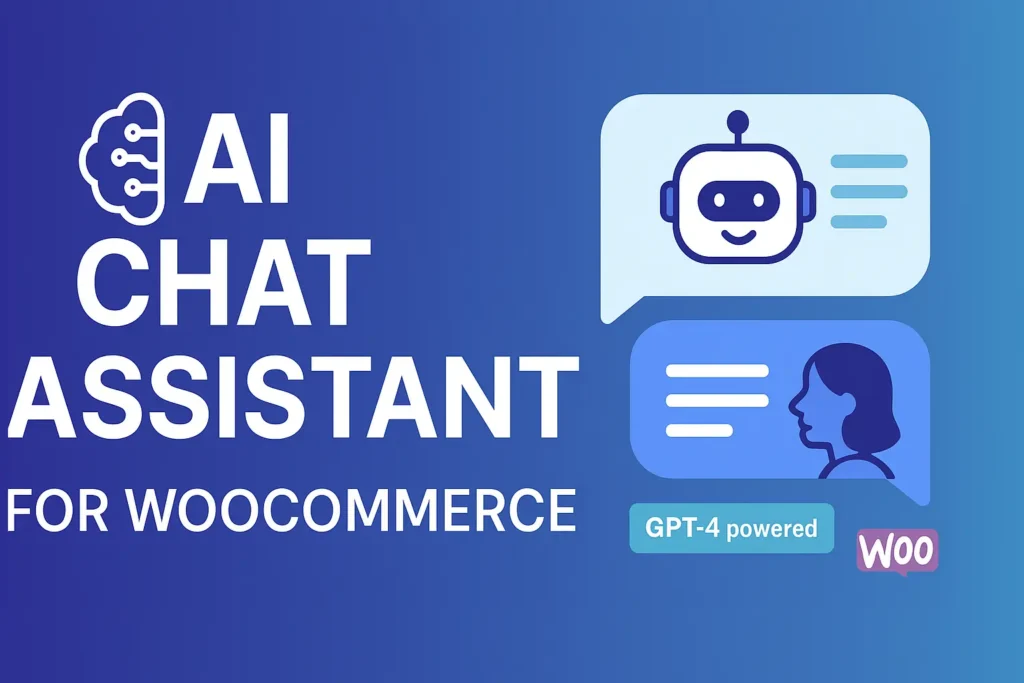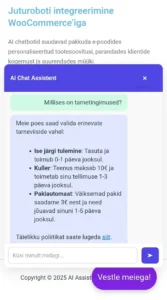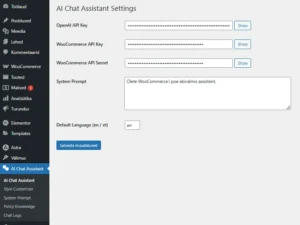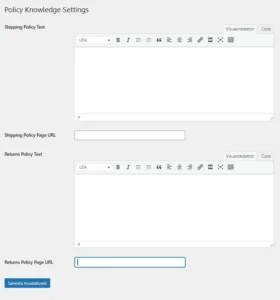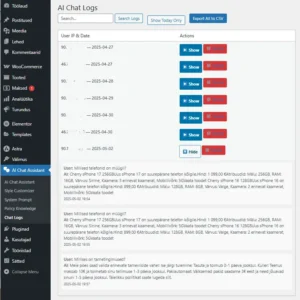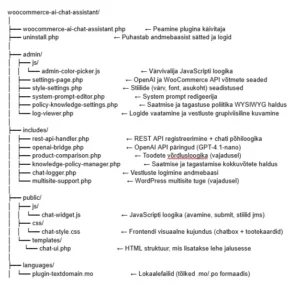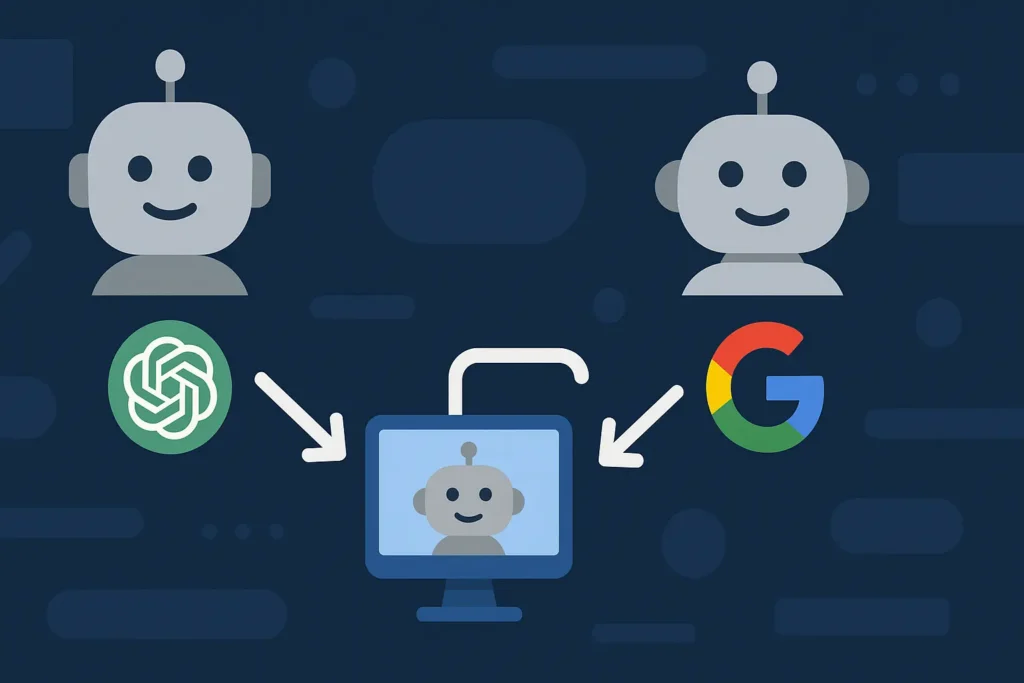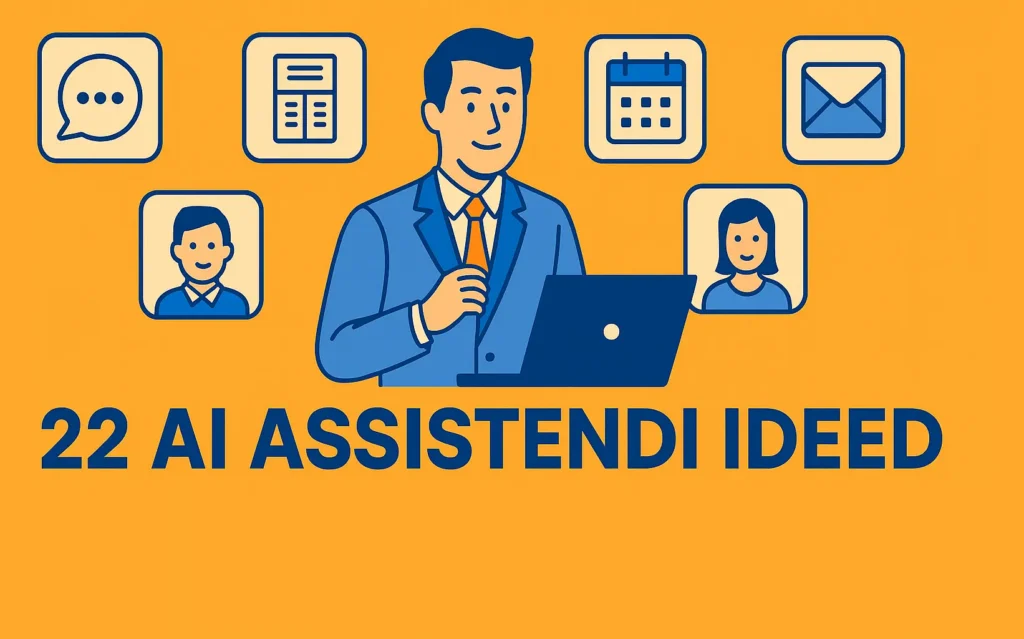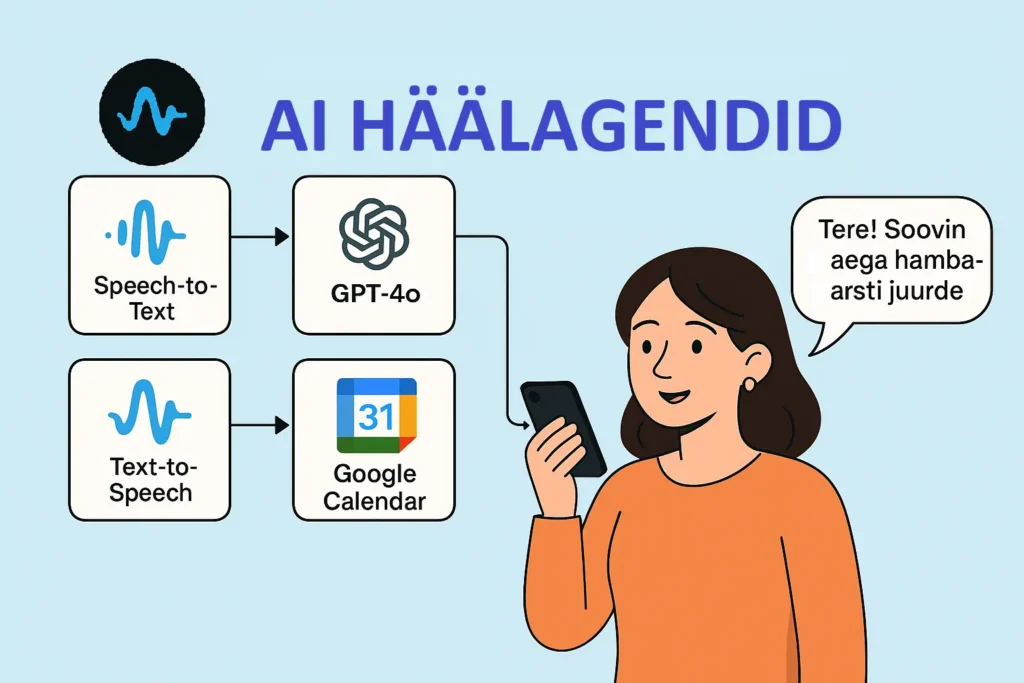In e-commerce, speed and accuracy of customer service are critical. If a customer can't find answers or a suitable product quickly, they will most likely move on to a competitor's page. It is to solve this problem that my WordPress plugin was born: AI Chat Assistant for WooCommerce – a chat assistant based on artificial intelligence (AI), which helps e-store visitors navigate and make decisions faster. It is also possible to reduce company costs through automation.
Why did I make this plugin?
The plugin is done. for educational purposesto get a real-world experience of what it takes to build a full-fledged AI-based chat assistant and what features it should include. The plugin was created with the help of AI.
WooCommerce e-commerce stores on WordPress are very common, but the built-in customer support is limited. Integrating live chat often requires a third-party service, which can be expensive, complicated, or not intelligent enough. I wanted to create a plugin that:
-
Works seamlessly with WooCommerce.
-
Uses OpenAI GPT-4.1-nano model to explain product information and purchase terms.
-
It is easily customizable.
It is also possible to simply use AI as a conversational assistant that can respond to information provided by the company.
What does the plugin do?
⚙️ Admin panel and customization
The plugin has a convenient admin interface where you can:
Manage OpenAI and WooCommerce API keys.
Change the chat style and system prompt.
Specify shipping/return information.
View chat logs by date and IP.
Customize the appearance of the chat button (colors, fonts, texts, etc.).
Technical structure
The plugin consists of a clear folder structure:
admin/– settings and log viewer.includes/– GPT connection, REST API handlers, product comparison, etc.public/– JavaScript and CSS for the chat window.languages/– translation files for international use.
All API keys are hidden on the server and the REST API is secured with a nonce.
Lessons learned from this project
This plugin was of significant importance to me – I was able to practice several important skills at once:
OpenAI integration with WordPress
– I learned how to structure GPT queries effectively and avoid redundant context. Also, how the language model understands whether to look at information from a given set of knowledge or use its own logical thinking.API security and usage
– Experience in creating nonces, AJAX requests, and REST endpoints.Modular structure planning
– Logical separation of files and functionality (admin, includes, public).UX/UI and conversational logic
– How to create a user-friendly and seamless chat experience that also works well on mobile.Scaling challenges
– If there are thousands of products, GPT input must be optimized to be concise and accurate.
Bottlenecks and improvement ideas
Requires an OpenAI API key, which has a small cost. If you choose the right model, the cost is minimal.
Product filtering is currently simple – it is possible to add AI-based category recognition.
Possibility to add an additional shopping cart feature.
- For large-scale e-shops, the logic that passes the query to the language model must be redesigned.
Who is the plugin suitable for?
Small e-shops that lack 24/7 customer support.
WooCommerce users who want to integrate a smart and customizable AI assistant.
Small and medium-sized businesses that don't have the resources for a human-answered live chat but want to provide a high-quality customer experience.
Summary
Building this AI-based chat assistant was a huge learning experience for me – from understanding the API to developing a user-friendly WordPress interface. It also made me realize that for large-scale e-commerce stores with thousands of products, a completely different product structure is needed.
I hope that the experience of building AI Chat Assistant for WooCommerce will help create more better AI-based systems.
If you have any questions, feel free to contact us!
